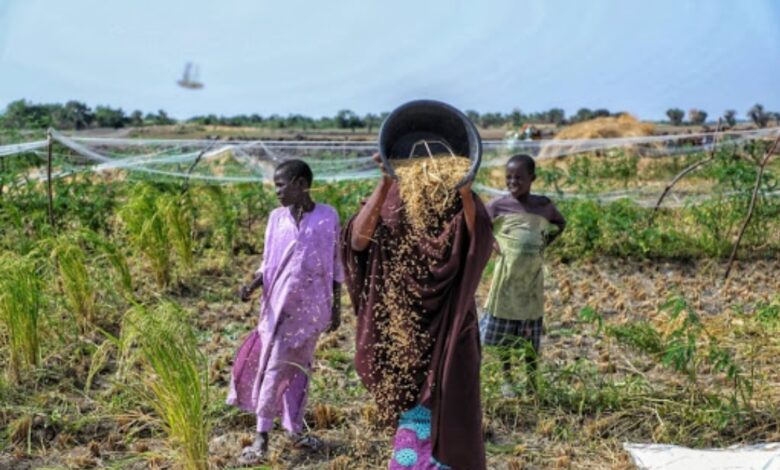Continued Insecurity In Northeastern Nigeria Cripples Food Production- FAO
The Food and Agriculture Organization of the United Nations says over 4 million people are projected to face high acute food insecurity in Adamawa, Borno, and Yobe.

The protracted insurgency in northeastern Nigeria continues to affect food production in Adamawa, Borno, and Yobe states, causing socio-economic losses and high levels of acute food insecurity and malnutrition, according to the United Nations (UN) Food and Agriculture Organization (FAO).
The FAO in its recent report on the region stated that the influx of displaced persons is placing an additional burden on host communities who already face limited access to land and other resources, thus affecting food production and forcing them to depend on humanitarian assistance.
The UN agency says it aims to provide 42,500 households with quality seeds and fertilisers for the 2022 rainy season. It indicates that it will also establish integrated aquaculture and horticulture production centres and fish processing centres that would allow the displaced persons to restart their agriculture-based livelihoods.
In the report, the FAO noted that “the Government of Borno State has continued to carry out a resettlement programme for IDPs, calling upon development partners to support its efforts to implement sustainable livelihood interventions,” as relative stability returns in some parts of the state.
Under its 2022 Humanitarian Response Plan, the organisation disclosed it has increased its funding requirement for 2022, compared with the previous year, to respond to the additional needs that have recently emerged to support the livelihoods, food security and nutrition of resettled displaced persons.
FAO’s intervention including dry and rainy seasons farming; aquaculture and livestock support programme reportedly contributed to increased food security in 2021.
However, households’ food stocks are likely to be exhausted by the beginning of the next lean season (June–Aug. 2022).
The report disclosed that “despite the ongoing conflict, access to land, as well as staple food and cash crop production have slightly increased in 2021 compared with the five-year average in the three most affected states in northeastern Nigeria”.
Support Our Journalism
There are millions of ordinary people affected by conflict in Africa whose stories are missing in the mainstream media. HumAngle is determined to tell those challenging and under-reported stories, hoping that the people impacted by these conflicts will find the safety and security they deserve.
To ensure that we continue to provide public service coverage, we have a small favour to ask you. We want you to be part of our journalistic endeavour by contributing a token to us.
Your donation will further promote a robust, free, and independent media.
Donate HereStay Closer To The Stories That Matter




